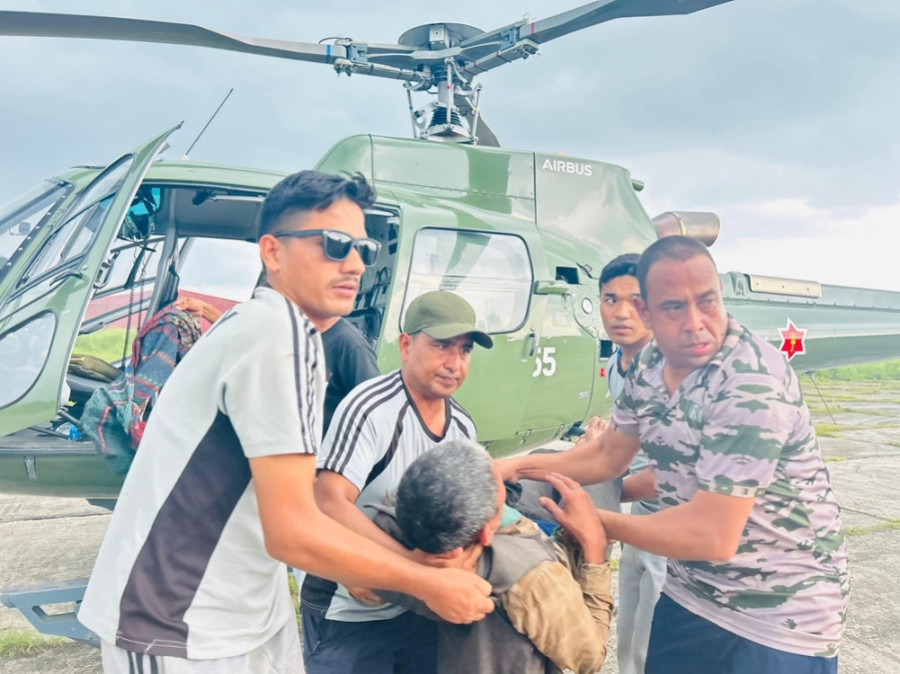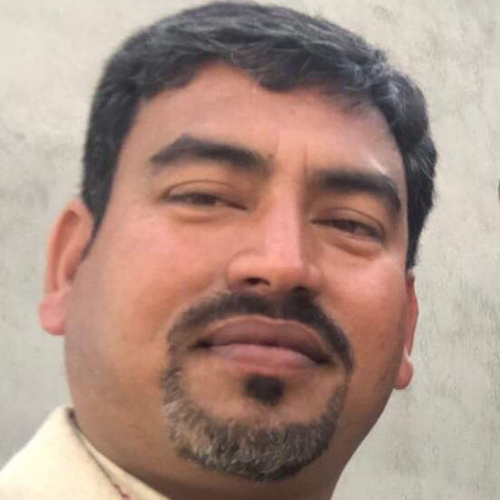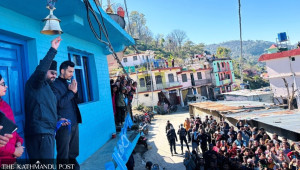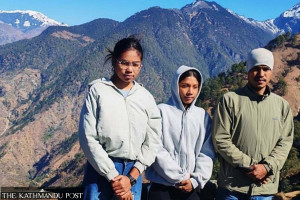Sudurpaschim Province
Delayed rescue in Bajura jeep crash exposes challenges of emergency response in remote Nepal
Injured wait eight hours for air rescue.
Arjun Shah
A jeep accident in the remote mountainous village of Kyudi, Bajura district, on Thursday morning killed three people and injured 18.
The rescue process in the incident has exposed serious gaps in Nepal’s emergency medical evacuation system.
Around 8:30am, a jeep carrying 21 passengers from Kyudi to Dhulachaur lost control on a newly opened narrow road. Three elderly passengers died on the spot. Seven critically injured survivors urgently needed transfer to a better-equipped hospital.
Local officials and health workers immediately launched rescue efforts. However, the remote location—about two and a half hours from the rural municipality centre of Dhulachaur—hindered ground evacuation. Attempts to secure helicopter assistance faced major obstacles, delaying critical care.
Kyudi Rural Municipality chair Govinda Bahadur Malla, who was in Kathmandu then, urgently appealed to the Home Ministry and Nepal Army for evacuation support.
After a meeting, Chairperson Malla and Chief Administrative Officer Raj Bahadur Malla informed Home Minister Ramesh Lekhak about the injured’s condition and the challenges faced.
According to Chairperson Malla, the home minister said the government could not provide air rescue or any assistance except in disaster-related cases.
Meanwhile, the Nepal Army in Surkhet said they could not dispatch a helicopter due to a lack of funds. Efforts by Chief District Officer Meghnath Padhya with the home ministry also failed.
Critically injured patients waited for eight hours without rescue at Tithichaur—an hour from the accident site—Frustrated by the delay, the municipality decided to cover helicopter costs themselves. Only then did the Nepal Army send a helicopter from Surkhet, arriving around 3pm.
The helicopter made two trips, airlifting seven critical patients to Karnali Provincial Hospital in Surkhet for advanced treatment.
However, Chairperson Malla alleged the government neglected treatment once patients arrived. “One of our municipality employees has been coordinating treatment,” he said. “There must be a clear government policy on rescue after road accidents in rural areas.” Ten others injured are receiving care at Kolti Hospital.
Police preliminarily blamed the accident on the jeep being overloaded on the newly constructed road. The passengers were travelling to receive social security payments and administrative services.
Experts say this incident highlights how remote mountainous communities in Nepal face disproportionate risks due to inadequate emergency infrastructure and bureaucratic delays.
Chair Malla criticised the government’s slow response, noting the helicopter cost nearly Rs239,000 per hour, which the municipality had to bear to save lives.
Locals say such delays cost precious time and lives. “It took hours just to find a helicopter,” said a health worker. “By then, it was almost too late.”




 10.12°C Kathmandu
10.12°C Kathmandu















